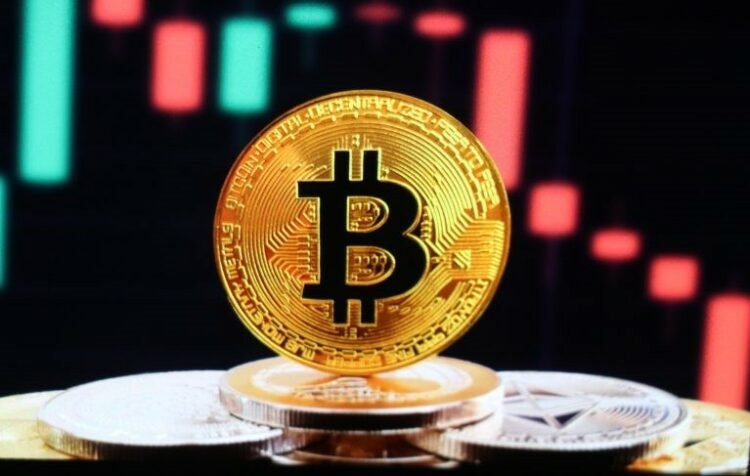In this article, we will explain to you how Bitcoin works and how Bitcoin is revolutionizing global finance. We will also show you why Bitcoin has been seeing an increase in adoption and its market price has increased more than 300% in 2020 alone.
How Bitcoin Works: Investing like a Pro
Bitcoin is a decentralized form of digital currency that was created by Satoshi Nakamoto back in 2009. Bitcoin can be used as a medium of payment or exchange on various peer-to-peer (P2P) networks such as Bitcoin Cash, Dash, Dogethereum. It can also be traded with fiat money such as Euro or U.S dollars on various public exchanges. Note that Bitcoin Cash is a Bitcoin fork or update that was released on August 1, 2017. Bitcoin Cash aims to address the scaling issues inherent in Bitcoin’s protocol. Bitcoin Up has been seeing an increase in adoption and its market price has increased more than 400% in 2017 alone.
You can get Bitcoin by accepting them as a payment for goods and services you provide or buy some from your friend/colleague/relative who already has some Bitcoins.
Bitcoin works similar to the US dollar, Pound, Euro, etc., which are also called FIAT currencies. To understand how Bitcoin works, you must know about Transaction Block Chains first. A transaction blockchain is a public record of Bitcoin transactions in chronological order.
The bitcoin protocol is designed in such a way that Bitcoin transactions take place between users directly and no third party or middleman (a central authority) is involved. Bitcoin miners are responsible for the generation of new Bitcoin by solving complex algorithms called ‘Proof of Work’. Bitcoin miners are rewarded with Bitcoin when they successfully mine Bitcoins using powerful computers known as Bitcoin mining rigs.
Bitcoin pools are formed when individual miners contribute their computing power to a group, working together in the processing of Bitcoin transactions.
Why Bitcoin? Your Guide to Investing Like a Pro
Bitcoin provides the following advantages over conventional methods of payment:
Low transaction fees compared to credit cards No cross-border remittance chargebacks for merchants No danger of fraudulent chargebacks 0% money transferring cost Bitcoin’s value fluctuates, Bitcoin can be exchanged for other currencies Bitcoin is not tied to any country so it is free from government interference Bitcoin has a decentralized currency supply Bitcoin allows private transactions
Bitcoin Exchanges: Investing like a Pro
A Bitcoin exchange is an online platform that acts as an intermediary between buyers/sellers of the cryptocurrency. . You can buy Bitcoins using your credit card or even through an electronic transfer of funds from your bank account. There are some Bitcoin brokers who sell their customers’ Bitcoins directly on the Bitcoin network, independent of any exchange. Hence one should always make sure he/she uses the right Bitcoin Exchange while buying/selling Bitcoins.
Bitcoin has been seeing an increase of adoption and Bitcoin’s market price has increased more than 400% in 2017 alone. Bitcoin exchanges are also considered Bitcoin wallets. Bitcoin wallets can be divided into two categories:
Bitcoin wallet apps that permit sending/receiving Bitcoin through mobile devices Desktop wallets Bitcoin exchange accounts Bitcoin Wallet providers offer Internet-based Bitcoin storage, which is available all over the world. However, they may charge hefty fees for the service they provide. On the other hand, Bitcoin desktop wallets are free of cost but they require you to install them on your computer or web server so that you can use them offline. Also, since Bitcoins transactions are irreversible, it is essential that one must store their Bitcoin savings in a secure Bitcoin Wallet app or website instead of their Bitcoin exchange account.
Bitcoin Mining: How to invest like a Pro
Mining is the process of adding transaction records to Bitcoin’s public ledger of past transactions (or blockchain). It exists so that Bitcoin can reach a consensus on the history of transactions. This allows Bitcoin software to determine when a particular Bitcoin amount has been spent, which is necessary in order to prevent double-spending in an environment without central oversight. When two blocks are found at the same time, miners work by putting these two blocks together and then doubling spending those coins.
When another block is found it will result in near-instant halving and miner rewards will be cut by 50%. The bitcoin protocol specifies that the reward for adding a block will be halved every 210,000 blocks (approximately every four years). Bitcoin miners are paid transaction fees as well as a subsidy of newly created coins, called block rewards.
Bitcoin mining is so-called because it resembles the mining of other commodities: it requires exertion and it slowly makes new currency available at a rate that resembles the rate at which commodities like gold are mined from the ground. Bitcoin was invented by an unknown person or group of people using the name Satoshi Nakamoto.





























